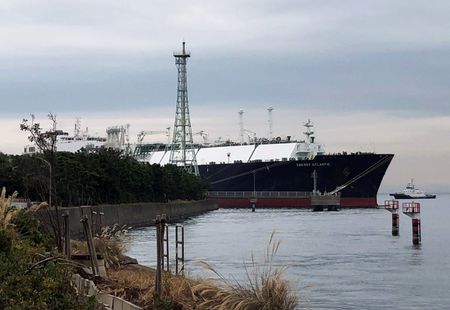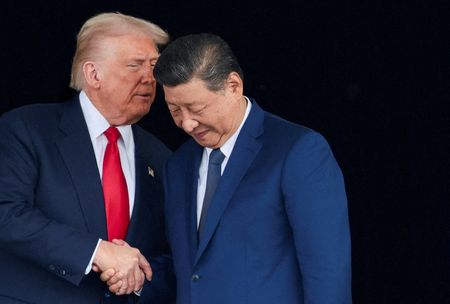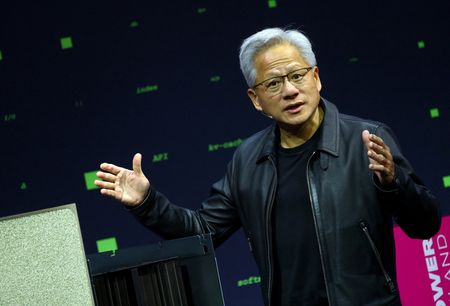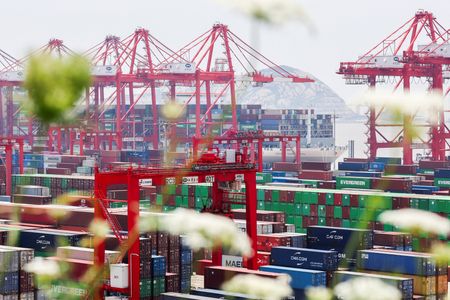By Yuka Obayashi
TOKYO (Reuters) -Japan, the world’s No.2 LNG importer, plans to buy liquefied natural gas for emergency reserves on a monthly basis from January, instead of buying only during peak demand periods, to guard against supply shocks, two industry ministry sources said.
The reinforcement of the country’s Strategic Buffer LNG (SBL) program, run by the Ministry of Economy, Trade and Industry (METI), will ensure at least one LNG cargo – about 70,000 metric tons – is secured each month to mitigate supply risks.
For the year, that means Japan will buy at least 12 cargoes, or 840,000 tons of LNG, for its emergency reserve, up from about 210,000 tons in each of the past two years.
If there is no emergency, SBL cargoes may be used or resold. JERA holds SBL cargoes until 18 days before port arrival. Any resale losses are covered by the government, while profits must be returned to the government.
Japan is expanding its role as an LNG trader as domestic demand declines, selling excess cargoes abroad during periods of weak local consumption.
Since December 2023, JERA, Japan’s top LNG buyer and a certified SBL supplier, has bought one cargo for each of the three winter months over the past two winters to add to the reserve, although it was never activated.
From 2026, JERA will buy at least one SBL cargo for every month, from January to December, one ministry source said on Wednesday.
The utility will also secure one cargo for December this year, according to the source.
METI said last year it was considering stepping up purchases from the mid- to late-2020s.
Japanese power utilities have called for an expansion of the strategic buffer, which allows JERA to supply a cargo to a utility facing an urgent shortfall, hedging against disruptions from conflicts or nuclear reactor outages, among other issues.
JERA confirmed it has secured one cargo for each of the three winter months over the past two winters, but declined to comment on future plans.
Last month, the United States urged Japan to stop imports of Russian energy as part of efforts to pressure Moscow to end its war in Ukraine. Japan’s long-term contracts with Russia’s Sakhalin-2 LNG project cover about 9% of its LNG imports.
“Shifting to a monthly basis is not directly related to Russian energy issues, but it enables us to respond to any emergency situation,” another METI source said on Friday.
The two METI sources declined to be named because of the sensitivity of the issue.
Japan has no underground gas storage but has LNG storage capacity of around 12 billion cubic meters, or about 9 million tons, which would be just over a month’s consumption, at its receiving terminals, according to the International Energy Agency.
(Reporting by Yuka Obayashi; Editing by Katya Golubkova and Sonali Paul)










